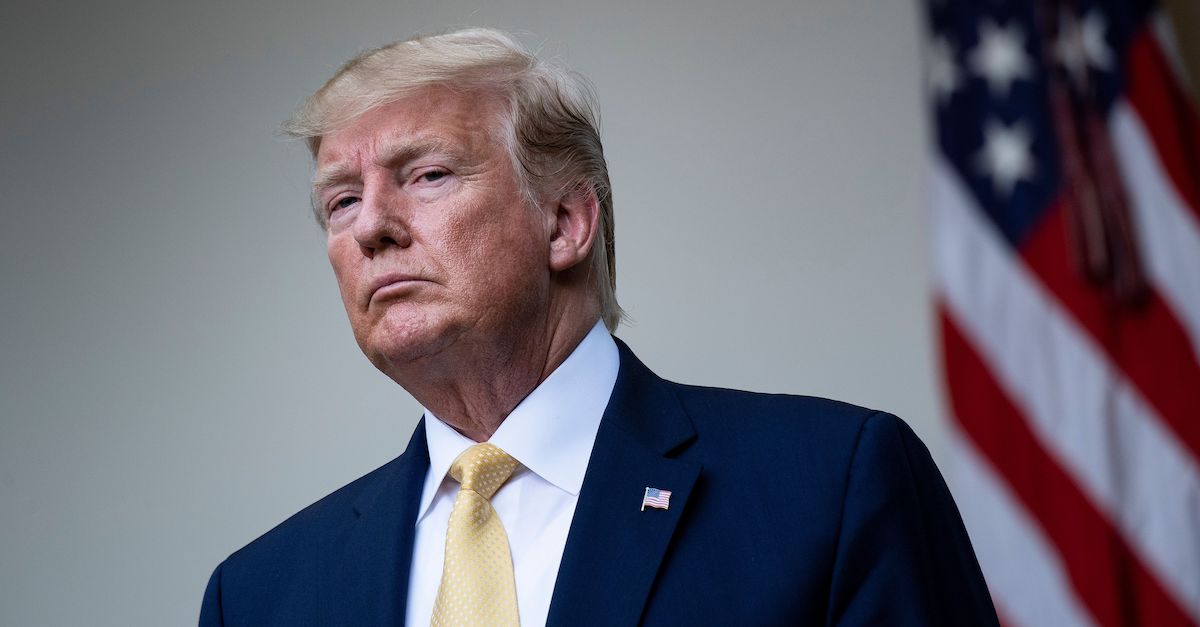
A federal judge on the U.S. District Court for the District of Nevada dismissed the Trump campaign’s lawsuit against the Silver State’s expansion to vote-by-mail amid the coronavirus pandemic.
Senior U.S. District Judge James Mahan said that the Trump campaign, the Republican National Committee and the Nevada Republican Party failed to survive the defendants’ motion to dismiss because they did not sufficiently allege harm. Put another way, the plaintiffs lacked standing to sue Nevada Secretary of State Barbara Cegavske, who is also a Republican.
When the plaintiffs filed suit, they decried Assembly Bill 4 (AB4) as an invitation to widespread fraud and electoral chaos. The legal challenge came just one day after President Donald Trump accused Nevada’s Democratic Governor Steve Sisolak of unlawfully seizing power in an “illegal late night coup.”
That was in early August.
Sisolak signed AB4 during special session of the state’s legislature. The law specified that Nevada election officials would send all active registered voters a mail-in ballot if there was a statewide emergency or disaster directive, such as the ongoing coronavirus pandemic.
The lawsuit claimed that the implementation of universal mail-in voting would effectively extend the deadline of the 2020 presidential election beyond the one mandated by the U.S. Constitution because of a provision that permits ballots with unclear postmark dates to be counted if they are received by 5:00 p.m. three days after Nov. 3. AB4 also established a rule that the number of in-person polling locations should correlate with a county’s population.
Mahan, a George W. Bush appointee, said the Trump campaign’s alleged injuries as a result of the above were impermissibly “generalized and speculative” in the complaint.
“Moreover, a concrete injury must actually exist and affect the plaintiff in a personal and individual way,” Judge Mahan set the stage. “Defendant argues that plaintiffs do not have standing to bring their claims for relief. This court agrees.”
The three-part Article III standing test requires that a plaintiff demonstrate an “injury in fact” if a lawsuit is to move forward:
1) The plaintiff must have suffered an “injury in fact,” meaning that the injury is of a legally protected interest which is (a) concrete and particularized and (b) actual or imminent
2) There must be a causal connection between the injury and the conduct brought before the court
3) It must be likely, rather than speculative, that a favorable decision by the court will redress the injury
The judge noted that the Trump campaign tried and failed to establish standing in three ways: “(1) associational standing to vindicate harms to their member voters, (2) direct organizational standing due to their need to divert resources, and (3) direct and associational standing to vindicate competitive injuries to their candidates.”
On the first way:
This court finds that the Trump campaign fails to satisfy the second prong of associational standing: the interests of the voters are not “germane to the organization’s purpose.” Id. The Trump campaign does not represent Nevada voters. The Trump campaign represents only Donald J. Trump and his “electoral and political goals” of reelection.
On the second way:
Organizational standing is recognized where the alleged misconduct of the defendant causes “a drain on [plaintiffs’] resources from both a diversion of its resources and frustration of its mission.”
Mahan was “unpersuaded” by the idea that AB4 was so confusing and discouraging that voters would check out mentally and decide not to vote—directly harming Trump’s re-election chances.
“Plaintiffs argue that AB 4 would ‘confuse’ their voters and ‘create incentive to remain away from the polls.’ (ECF No. 29 at ¶ 17). Outside of stating ‘confus[ion]’ and ‘discourage[ment]’ in a conclusory manner, plaintiffs make no indication of how AB 4 will discourage their member voters from voting,” the judge said.
On the third way:
Finally, plaintiffs argue that they have both direct and associational standing to challenge “competitive harms” to their electoral candidates. (ECF No. 42 at 8). “Competitive standing” can exist when a state action will lead to the “potential loss of an election.”
The Trump campaign’s pleadings made “no showing of ‘an unfair advantage in the election process,'” the judge found. Instead, the plaintiffs relied on “conclusory statements on confusion and disincentives that this court has already found unpersuasive.”
As a result, Judge Mahan granted defendants’ motion to dismiss.
Jerry Lambe contributed to this report.
[Image via BRENDAN SMIALOWSKI/AFP via Getty Images]
Have a tip we should know? [email protected]